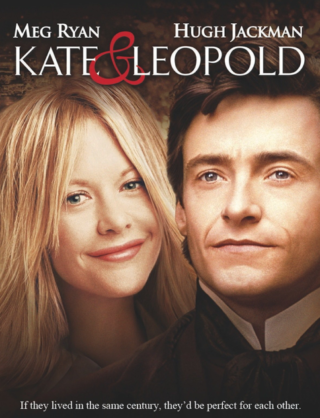
A woman’s place is in the home –as CEO of a staff of dozens.
I’m in love with all of this, so it’s all fine with me.
Start with Meg Ryan, because that’s what set me spinning:
Sleepless in Seattle last night. Holds up well. The plot? Sam (Sd->Ds) meets Annie (Sc->Sd). Jonah’s underfathered mutiny is fun throughout.
That’s just hypnotizing chickens, DISC-summarizing cinema in the length of a Tweet. But that led me to this notion:
Is Meg Ryan’s entire career Sc->Sd?
Girl-next-door, cute and plucky but risk-averse, learns to let down her (gorgeous) hair, trust her gut and fall in love at last.
How strong is she that she could make a story that weak work so well again and again?
That’s a hasty generalization, to be sure – but still…
People call Helen Hunt the back-up Meg Ryan, but in fact Ryan has done excellently well at picking only Sc->Sd roles in her star turns, sticking Hunt and others with characters who would have hurt her bankability.
Now I want to know how much of this she understands…
We’re doing Kate and Leopold tonight: A woman’s place is in the home – as CEO of a staff of dozens.
And that’s what we did, so here is Kate and Leopold in DISC:
Leopold, a Di fop with Dc yearnings learns to be Ds while pursuing Kate, who only ‘takes the leap’ from Sc to Sd in the penultimate scene.
But I knew even before I started that that would be too simple an analysis. The argument of the story is explicitly anti-feminist: The problems of Sleepless in Seattle’s woman-of-a-certain-age are best solved in the past, when a woman’s place was not only in the home but in the kitchen or the nursery. Accordingly, it seems obvious to me that Kate would be Nora in no time.
But I saw even more in the film tonight than I have before. There’s a lot going on, and I think Heinlein is there at least twice – the old Leonard Vincent time travel yarn along with the propitious incest of Time Enough For Love. Every time travel story is inherently deterministic, obviously, so it is a measure of how much I like Kate and Leopold that I’m willing to put up with all the deliberately-mystifying mishegoss. ‘Must’ ‘choose’? Feh!
What was new for me tonight was seeing the longing, in the Ci world of millennial Manhattan, for the Ds culture of the Nineteenth Century. I’d be amazed if that was what writer/director James Mangold was up to. We’ve been DISCing cinema for ten years now, and I think all fiction should be crafted with DISC sensibilities, but I don’t know that anyone is devising consciously the outcomes I am diagramming.
Was I to guess, I think Mangold was talking about David Riesman’s The Lonely Crowd. Inner-directed Leopold is a fish-out-of-water in the other-directed modern world, but Kate and her brother Charlie (and dog Bart) feel an underfathered need for Leopold’s stable, confident inner-direction. Fiercely-independent freelance physicist Stuart Besser is literally the ‘bridge’ between the two mutually-alienating worlds.
But my DISC analysis holds up better, I think – against both the film and the book. What Riesman was describing were the secondary consequences of the gradual takeover of education by Ci theorists, replacing the Ds curricula that had predominated since Loyola. And Mangold’s longing is for the end product of that curriculum: The calm, well-contained, self-responsible adults who make Ds civilization civil – and whose absence makes society every day more unlivable.
There’s lots more: Elevators as a metaphor for dizzying social hierarchies; stairs of our shared, even if graduated, humanity; Kate’s self-inflicted misery as a female Sc pretending and failing to be a male Cd; her profound unsuitability for the job she is being promoted into; her epiphany that she enjoys being a girl; the Breakfast at Tiffany’s infatuation, etc. I almost never care why artists make choices – the reason behind every poor choice is poor reasoning – but I would love to hear everything James Mangold was thinking when he wrote this film.
Kate and Leopold is a benedy – everyone is better at the end – and Meg Ryan delivers to the script: Sc->Sd, details fungible. But it is an amazingly conservative document – anti-modern, anti-politically-correct, anti-feminist. I’ve loved it every time I’ve seen it, but never so much as I did this time.
Is Act IV a mess? If you learn to play the Act IV Game – what happens just after the curtain goes down? – you will find that Act IV is often a mess. But what Mangold has made here holds up, and it deserves to. His is the last word on the woman-of-a-certain-age rom-com: Calm down, get married, have kids, cultivate joy. Wonderful that he got away with it, still more wonderful that the case is made so compellingly.















